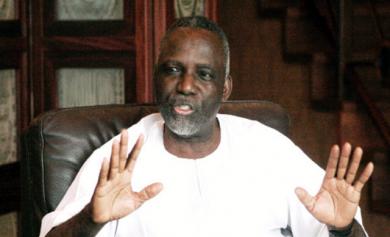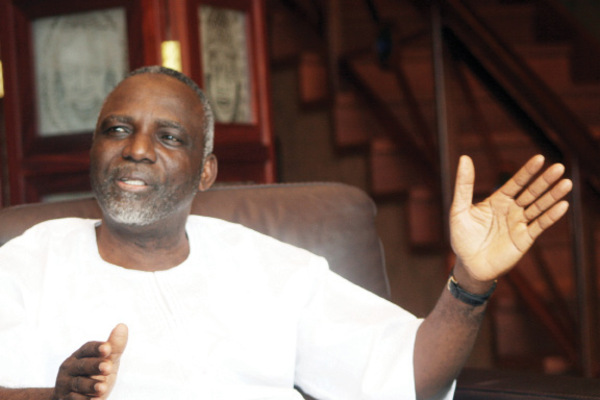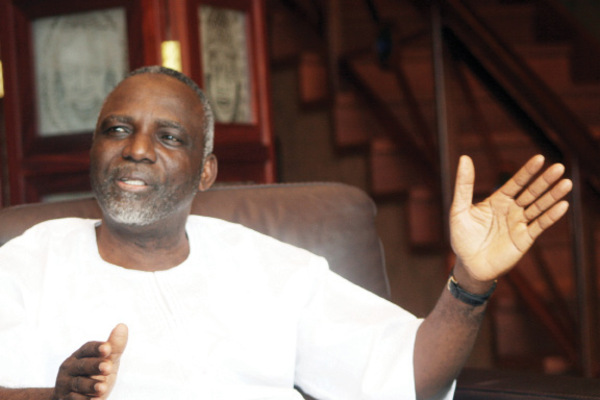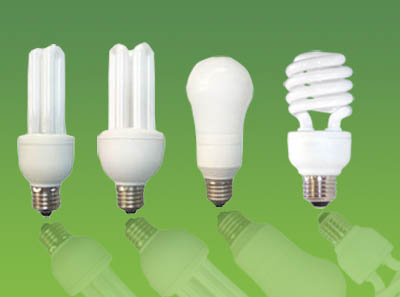New Power Tariff to fetch PHCN N 22.5 billion monthly
The new Multi-Year Tariff Order (MYTO) initiated on June 1 will reap a colossal N 22.5 billion for the government on a monthly basis.
The minister for Power, Bart Nnaji disclosed this while speaking at the Executive Intelligence Management Course 5, held at the Institute for Security Studies in Abuja on Monday.
Nnaji said, “Indebted to the tune of N400 billion, the PHCN has hitherto been paying the International Oil Companies (IOCs) only 50 per cent of their services. Should the IOCs be forced to carry out their long standing threat of stopping further supplies to the PHCN, it will be calamitous for the whole nation.”
He added that the new revenue base will enable PHCN meet its obligations to primary suppliers like Shell, Agip, Ibom Power, the NIPP and the Nigerian Gas Company.
The new MYTO took effect on June 1st without much opposition from the Nigerian public as with other price hikes in the country.
In defence of the new MYTO, Nnaji said, “NERC adopted some seven years ago the Multi Year Tariff Order (MYTO) methodology. This means a major tariff review every five years. The law makes it mandatory for NERC to adopt a tariff, which is fair and just to the Nigerian people as well as to investors. The periodic major review does not necessarily imply an increased payment by every consumer.
“For instance, in the second MYTO, which came into effect on June 1, 2012 (even though it ought to have started on January 1), the less privileged ones in society who consume 50 kilowatts hour or less in a month now pay less. They now pay N4 per kilowatt-hour, instead of N7. Meters are now to be given them free of charge. They are no longer required to pay either for meter maintenance charge or fixed charge. In this year’s budget, there is a provision of an almost N50b subsidy for low-income earners. This subsidy must be differentiated from the petroleum subsidy because, among other differences, there is no cash involvement at all in electricity subsidy. All the government has tried to do is to prevent the less privileged from paying heavily for electricity consumption which is an item of need, and not an item of want.”
He stressed: “The middle class now pays a slight increase of 11 per cent, and not 88 per cent, which has been reported in some media. But rich people and other high-end consumers now pay a cost reflective tariff. Different studies have shown that Nigerian citizens and businesses are willing to pay a little higher if guaranteed regular and quality electricity. The cost of electricity self-generation is prohibitive. Besides, self-generation pollutes the environment and even wipes out whole families who inhale carbon monoxide in their sleep.
“Indeed, more investments are critically needed in the power sector. Fresh investments of $10b yearly are needed for the next decade to enable our country to generate 40,000MW by 2020 so that we can become one of the 20 biggest economies in the world by 2020. We must encourage companies like Shell, Agip, Siemens, Daewoo, GE and the rest to continue to have confidence in our country. After all, return on investment is much higher in Nigeria than in practically every country in the West. Investors in infrastructure are doing quite well, as demonstrated by those who have invested in telecommunications in the last decade. The power sector is the next theatre of action.”
Related Posts
Latest News
-
FCMB Bank (UK) Limited Launches Personal and Business Banking Proposition to Deepen Inclusiveness
FCMB Bank (UK) Limited, an independently incorporated subsidiary of First...
- Posted August 1, 2018
- 0
-
The Worrisome Trend of Sensational Social Media “Journalism” and the Impact On Legitimate Business Concerns: Recent Travails of FCMB, GTBank and First Bank
On June 25, 2018 I woke up to yet another...
- Posted June 26, 2018
- 0
-
FCMB attains ISO Certification for Quality Management
Leading financial services provider, First City Monument Bank (FCMB), has...
- Posted May 16, 2018
- 0
-
Over 1,000 firms bid for 2017 railway projects
Over 1000 companies expressed interest in 17 categories of projects...
- Posted October 20, 2017
- 2
-
NAICOM moves to enforce compulsory insurance of public buildings
To drive the enforcement of the compulsory insurance of public...
- Posted October 20, 2017
- 11
-
Reps ask NPA to reverse termination of agreement with Intels
The House of Representatives yesterday waded into the ongoing controversy...
- Posted October 19, 2017
- 1
-
SEC suspends Oando shares from stock market
The Securities and Exchange Commission has ordered the Nigerian Stock...
- Posted October 19, 2017
- 1
-
FCMB Bank (UK) Limited Launches Personal and Business Banking Proposition to Deepen Inclusiveness
FCMB Bank (UK) Limited, an independently incorporated subsidiary of...
- August 1, 2018
- 0
-
The Worrisome Trend of Sensational Social Media “Journalism” and the Impact On Legitimate Business Concerns: Recent Travails of FCMB, GTBank and First Bank
On June 25, 2018 I woke up to yet...
- June 26, 2018
- 0
-
Azman Air commences flight operation in Sokoto
Azman Air Thursday commenced flight operation to Sokoto state....
- February 21, 2015
- 424
-
NRC increases Lagos goods trains, eyes fuel haulage
The Nigerian Railway Corporation says it has increased its...
- June 23, 2016
- 100
 Nigeria News
Nigeria News
- US-Iran: Many global flights disrupted as chaos deepens
- Iranian Chief of Staff, Abdolrahim Mousavi killed in US-Israeli air strikes
- War: Over 100 schoolchildren killed as US-Israel airstrike hit girls’ school
- Arsenal vs Chelsea: Arteta’s chance to steady the momentum – A preview
- Gospel artiste, Taiwo Adegbodu of Adegbodu Twins dies








